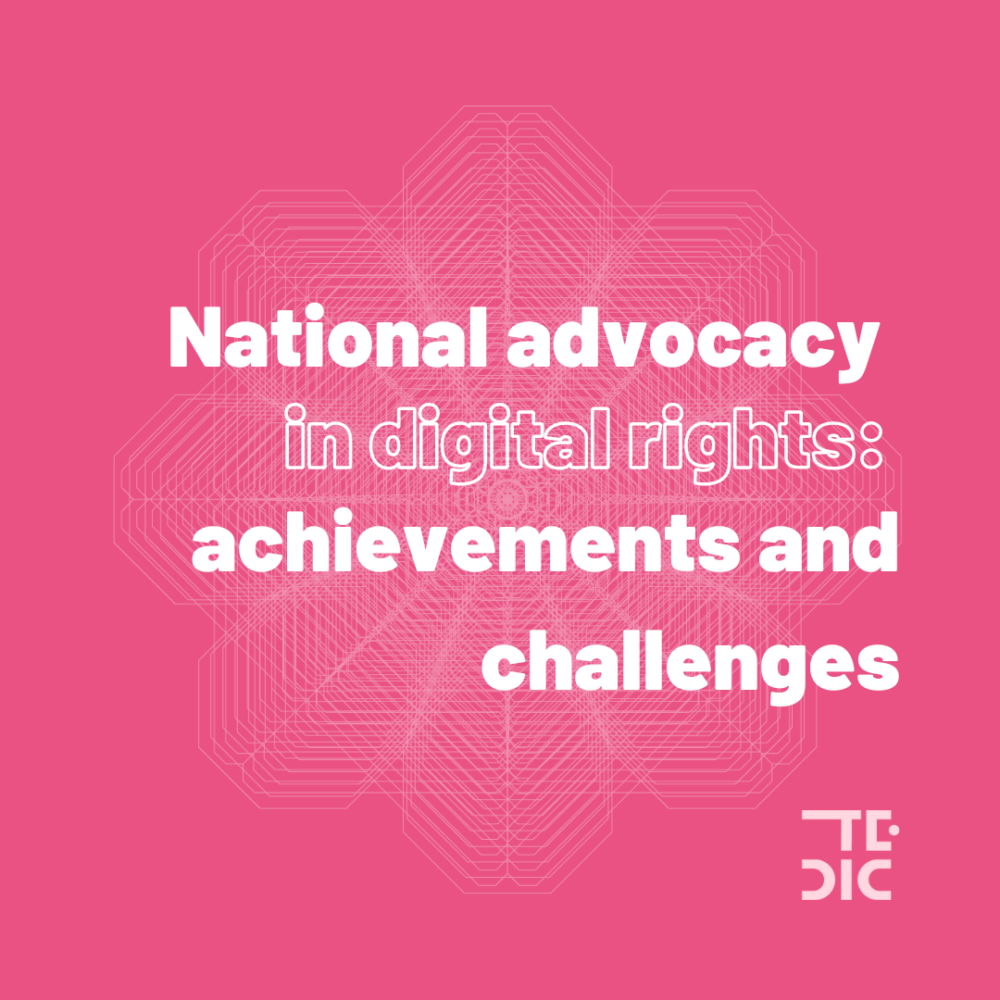
In a world where digitization is advancing rapidly, the defense of human and digital rights in Paraguay becomes a fundamental task. Our national context presents unique challenges, from the protection of personal data to the fight against digital gender violence, through the need to guarantee freedom of expression and continue to promote the strengthening of our democracy. As an organization that fights for the defense of human rights in digital environments, one of our missions is to influence policies that protect and promote these rights from a transversal gender perspective, ensuring that technology benefits society equitably and fairly. During the first semester of 2024, we carried out various actions that reflect this commitment, working tirelessly to influence the national political agenda and ensure that our rights are respected and protected.
Below, we present a series of our advocacy actions for this first half of the year, divided into our main areas of work:
Personal data: We continue fighting for the sanction of a comprehensive Law for Paraguay
During the month of February, in the third edition of the Crypto Summit of the South, which took place on the 20th of the month in Ciudad del Este, it gave us an excellent opportunity to bring our #MisDatosMisDerechos campaign to another city in Paraguay, being able to share and present several of the resources developed by our organization such as informative postcards about our research on cryptocurrencies and cryptomining and all our fanzines on personal data. Just two days later, on February 22, we participated in Meet and Greet de CiSOFT, organized by the Paraguayan Chamber of the Software Industry in the city of Asunción. In this event, Eduardo Carrillo, co-director of TEDIC, Natalia Enciso, and Cecilia Abente, lawyers who are part of the Personal Data Coalition of Paraguay, shared and discussed with more than 15 people about the proposal for a personal data law in Paraguay, a legislation that we have been promoting for over 3 years together with the Personal Data Coalition. This event was another opportunity to clarify doubts and emphasize the urgent need for this legislation in our country.
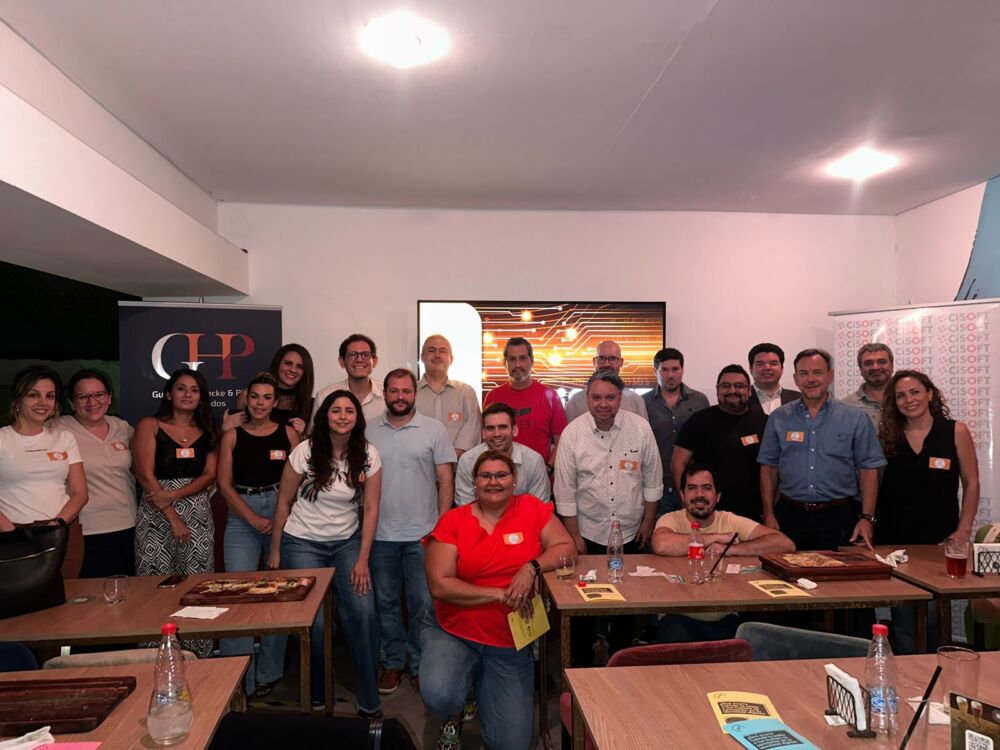
March was also a month of great activity. From March 11th to 20th, in collaboration with Klirk and with the support of SEDECO, ASEPY and ADEC, we presented a new online course aimed at entrepreneurs, companies, and organizations in Paraguay. This course focused on preparing stakeholders for the practical implementation of the Comprehensive Personal Data Protection Law, highlighting the importance of protecting both personal and business data. The course certified over 40 people from the private sector, government, and civil society on how to apply basic concepts of personal data protection to improve user experiences that generate greater trust in their clients. The importance of this course is magnified in a national context plagued by cases of cybersecurity breaches, such as the data leak of the national police in mid-2023 and the incident with TIGO in early January 2024, where sensitive data of thousands of people were exposed. We believe that these are just a few examples highlighting the urgency of strengthening cybersecurity practices and data protection in our country.
In this sense, we expanded our “Mis Datos Mis Derechos” campaign to new sectors and audiences, translating its main messages into Guarani and including two organizations, OPAMA and FENAES, which seek to influence the improvement of public transport conditions in the metropolitan area of Asunción and in the conditions and rights of students throughout Paraguay.
Additionally, during February and March, we held crucial meetings with the Ministry of Information and Communication Technologies (MITIC) and various Congress members, with the aim of reviewing the final version of the comprehensive personal data bill, seeking to ensure that this legislation reflects the highest international standards of human rights and can, effectively, be addressed and sanctioned in this legislative period.
During the month of May, we participated in the 20th Plenary Assembly of ParlAmericas where we shared some recommendations and recalled the need and role of parliaments to prioritize the protection of personal data as a transversal issue when thinking about digitalization processes in general. On May 27th, we participated in a working group promoted by the Science and Technology Commission of the Chamber of Deputies. The agenda of the day included analyzing the status of the Personal Data Protection Bill in Paraguay. Members of the technical team of the Personal Data Coalition were summoned, with the purpose of continuing to promote this bill, which is currently in a state of indefinition with respect to the regulatory authority.
Our impact in the area of personal data and privacy had a significant impact in the press, with 30 mentions in different media, including television, radio, written and digital press. We especially highlight our continuous work in advocacy for the sanction of the personal data bill, together with the Personal Data Coalition of Paraguay. The expansion of our “Mis Datos, Mis Derechos” campaign to the Guaraní language also achieved a significant echo in the press1, as well as other appearances that managed to position crucial issues such as the importance of protecting the privacy of citizens and the urgency of establishing a legal framework that regulates data processing in both the public and private sectors.
Democracy: we encourage informed participation
During the month of March we participated in the Bootcamp for Democracy, organized by Alma Cívica, in Ypacaraí where we were in charge of the workshop on “Tecnología para la democracia” in a relaxed atmosphere, in which young leaders were able to exchange experiences and learn about the importance of technology in building a democratic society, providing them with the knowledge and skills necessary to actively participate in politics and defend their rights.
On March 19th, in the conversation “Fortaleciendo la democracia” of the Observatorio Electoral Ciudadana, Leonardo Gómez, coordinator of democracy and technopolitics projects, spoke about electoral observation in Paraguay and the Latin American context. At this event he shared the experiences of El Avizor and the monitoring work we carried out during the 2023 presidential elections, emphasizing the importance of transparency and citizen oversight.
On March 20th, Leonardo Gómez also took part in an in-person workshop on the protection of electoral processes, organized by the NGO IDEA International. In this event, we led a discussion on the digital divide and civic education in Paraguay alongside Margarita Rojas from MITIC. We underscored the importance of promoting the capabilities of an informed and technologically competent citizenry.
During the month of March we also led a meeting with various civil society organizations as part of the international campaign “Stop Killer Robots”. During this meeting, we delved into the implications of autonomous weapons systems at the national and international levels and discussed the need for a joint statement and the urgent necessity to regulate them.
This meeting was attended by organizations such as Amnesty International Paraguay, Coordinadora de Derechos Humanos del Paraguay (CODEHUPY), Heñói Centro de Estudios y Promoción de la Democracia los Derechos humanos y la Sostenibilidad Socio-ambiental, Fundación Vencer, Semillas para la Democracia, and the organization Tape’a para el desarrollo social sostenible.
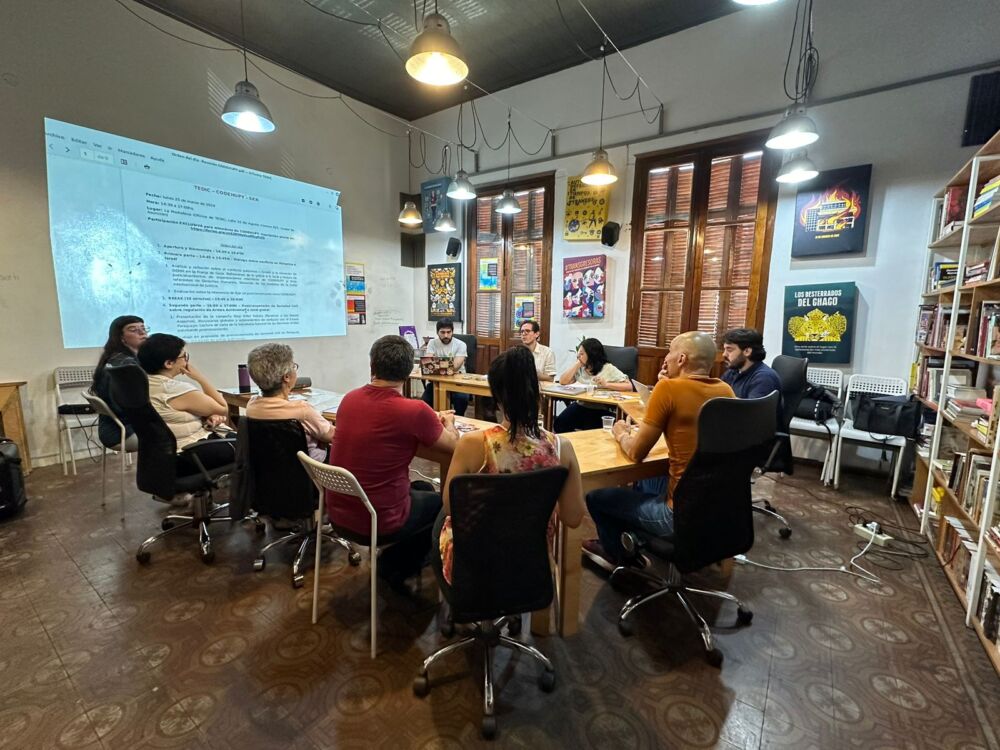
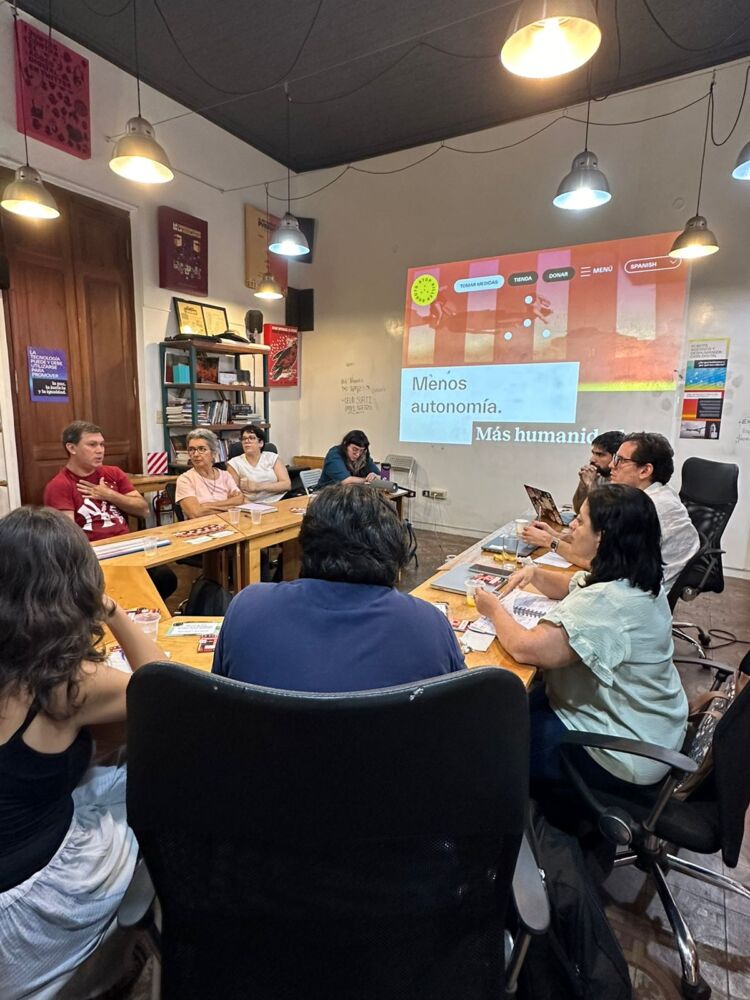
Participation of representatives of civil society organizations in Paraguay at the meeting – March 25th
On the other hand, at TEDIC we have been working in close collaboration with key actors of the Paraguayan State to promote an informed and constructive dialogue on the social and ethical impacts of the technology used for defense. These articulations aim to influence the formation of public policies and ensure that Paraguay can effectively contribute to international debates with a well-founded and ethically sound position on autonomous weapons systems.
In that sense, we held meetings with different public institutions between February and March of this year to publicize the UN charter and extend the invitation to a joint working group between TEDIC, the National Defense Council, the Ministry of Defense National, the Ministry of Foreign Affairs, the Science and Technology Commission of the Chamber of Deputies and the Science, Technology, Innovation and Future Commission of the Chamber of Senators of the National Congress.
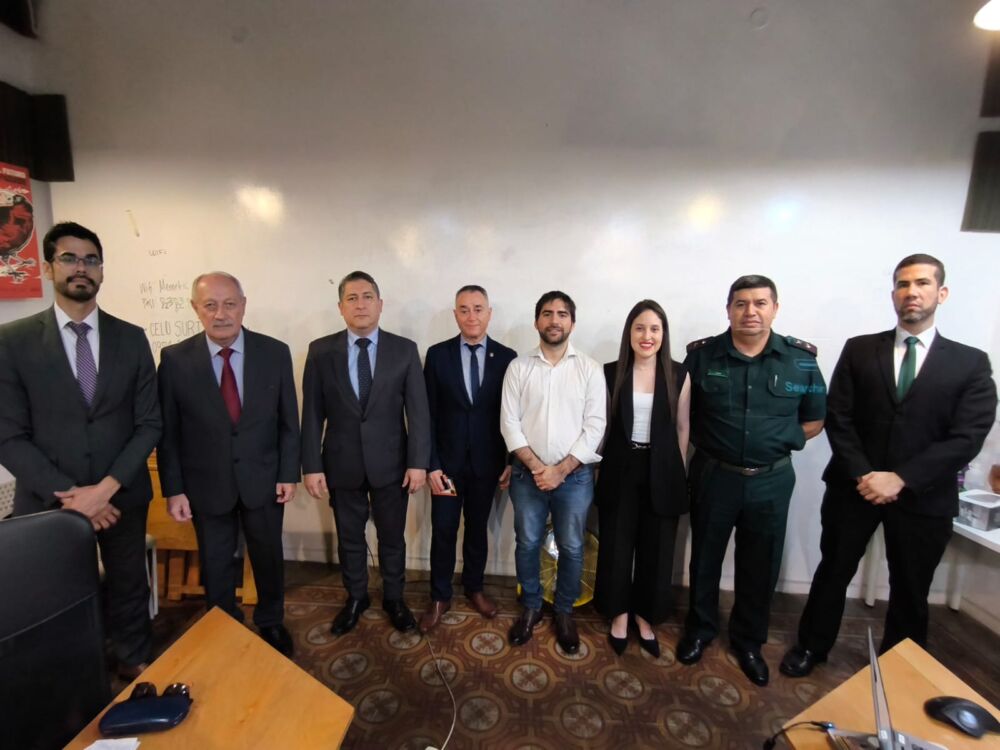
At this working group, alongside the various state institutions, we have the virtual participation of the expert María Pía Devoto, Coordinator of the Human Security Network of Latin America and the Caribbean (SEHLAC). Her contribution during the meeting laid the foundation for the current debate on autonomous weapons systems, providing state representatives with an expert look at the ethical and social challenges we face in the digital age, highlighting the importance of Paraguay’s role in the debate. global on the use and regulation of autonomous weapons. Additionally, in April, we closed the training and research cycle of Bootcamp 2023 – Political financing, data, technology and elections. In collaboration with Semillas para la Democracia we present a compendium of 10 articles titled “El poder bajo la lupa – Bootcamp 2023″. At this event we not only closed a stage of learning and development for the journalists who participated in these training sessions in two cities of the country, but we also launched a new investigation into the influence industry in Paraguayan elections, highlighting concerns on the manipulation of elections through social media.
On April 24th, we participated in the event “Promoviendo el desarrollo inclusivo del Paraguay” organized by the Inter-American Development Bank (IDB). This meeting, which brought together civil society and government representatives, was a space to reflect on good practices and lessons learned in promoting inclusion and strengthening civil society in Paraguay. The meeting promoted dialogue between a diversity of countries and replicated good practices, lessons learned and recommendations from the collaboration between OSC and the State, with an inclusion approach that guarantees the participation of the most vulnerable and excluded groups in society.
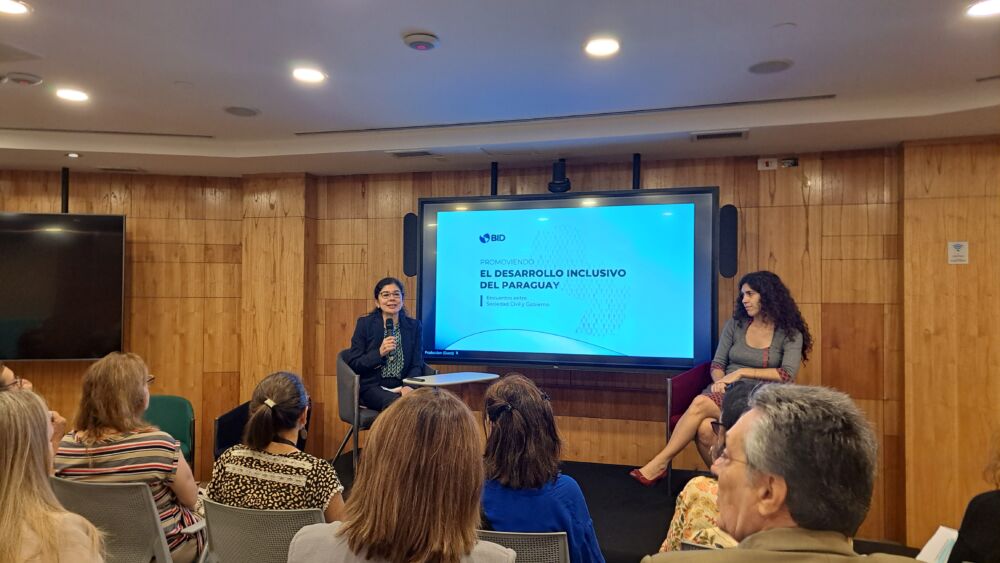
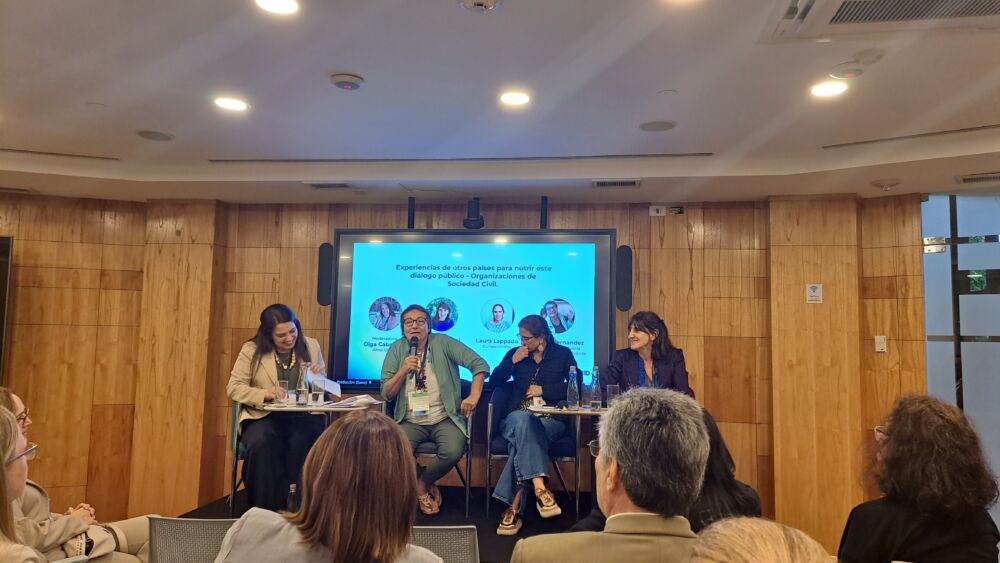
Our impact in the area of democracy, access to information and citizen participation also had a significant impact in the press, with 22 mentions in different media, including television, radio, written and digital press. Highlighted topics in this area included the coverage and dissemination of our research on electronic voting machines in the 2023 presidential elections and the release of articles produced as part of Bootcamp 2023 – Political financing, technology, data, and elections.
Freedom of Expression: The pillar of every free society
On April 20th, in celebration of Journalist Day in Paraguay, we conducted a workshop on misinformation and fact-checking in collaboration with the Embassy of Germany in Paraguay. Maricarmen Sequera, co-director of TEDIC, delivered a talk on Misinformation in the context of elections in Paraguay, and Javier Pallero, a human rights activist and communicator from Argentina, virtually presented the workshop: Misinformation, A.I, and tools and processes for identification.
Two days later, on April 22th, Eduardo Carrillo gave a conference at UniNorte on journalism and cybersecurity. This talk explored the challenges journalism faces in ensuring secure communication in an increasingly digitalized environment.
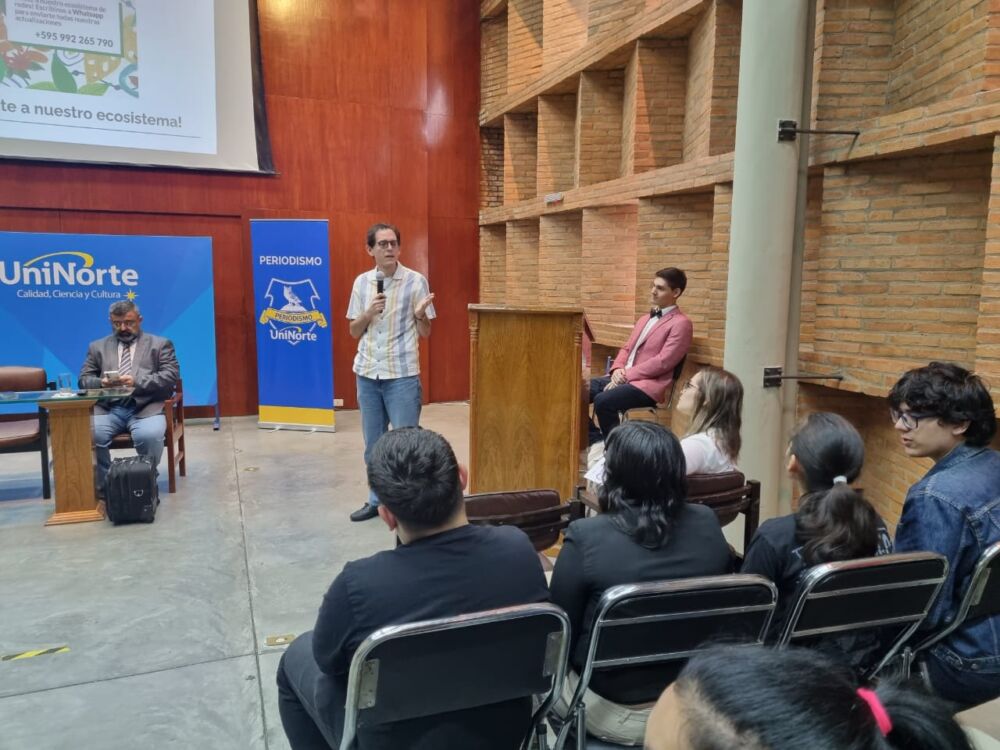
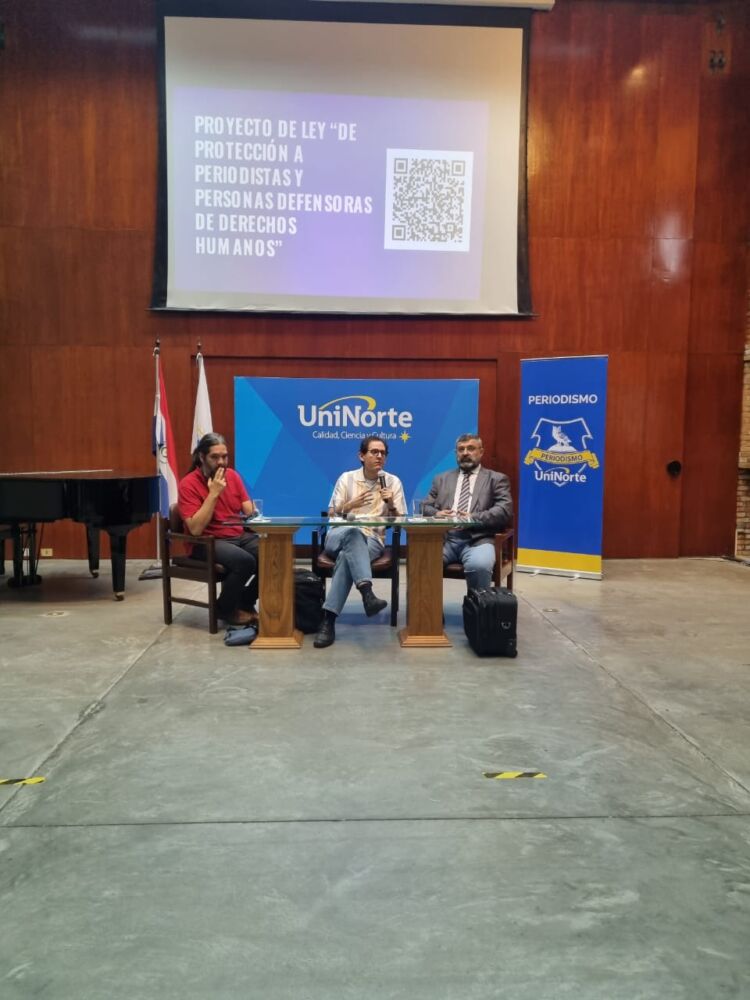
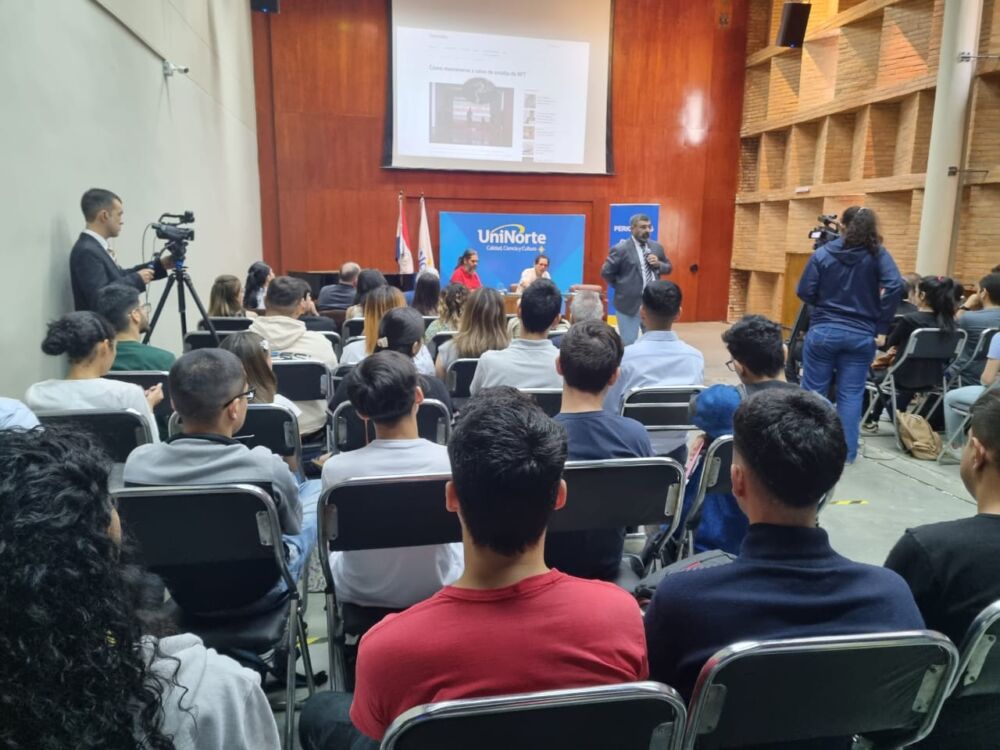
Our participation in the virtual consultation with the Relator Especial para la Libertad de Expresión (RELE) of the Inter-American Commission on Human Rights (IACHR) of the OAS, Pedro Vaca, led by Dr. Alejandra Peralta Merlo, also marked a milestone in our national impact in this area. During this consultation, we shared our concerns and recommendations regarding Law 5777/16 and the impact its misinterpretation, by some judges, is having on freedom of expression in Paraguay.
All the information shared in this consultation is the product of one of our latest releases, a new investigation in collaboration with the Centro de Estudios en Libertad de Expresión y Acceso a la Información (CELE), in which we closely examine six legal cases involving to officials and people of public interest under Law 5777/16, investigating how the application of this law is generating some controversies, especially regarding prior censorship and freedom of expression of journalists and communicators. This research was approached and presented to more than 20 key actors from both the press and the public sector in Paraguay, among which six deputies and senators of the National Congress stand out (Esperanza Martínez, Celeste Amarilla, Yolanda Paredes, Lilian Samaniego, Zenaida Delgado and Johanna Ortega), as well as representatives of the Ministry of Public Defense, the Ministry of Women, the Supreme Court of Justice, the Public Ministry and representatives of academia and civil society.
Our impact in the area of freedom of expression also achieved a significant impact in the press, with 14 media appearances on the subject. We especially highlight four interviews on four television channels with a large audience, where we managed to position crucial topics such as digital security in journalism, the importance of respecting the freedom of expression of journalists, the need for adequate regulation of intermediaries and the importance that law 5777/16 is not used to censor and limit the freedom of expression of journalists and communicators.
Gender: a transversal perspective for equality
On April 10th, in collaboration with Memetic and Diakonia and with the support of the European Union, we presented the”Informadas y Resilientes” project. This initiative seeks to reduce inequalities and promote human rights in Paraguay, combating misinformation and digital violence.
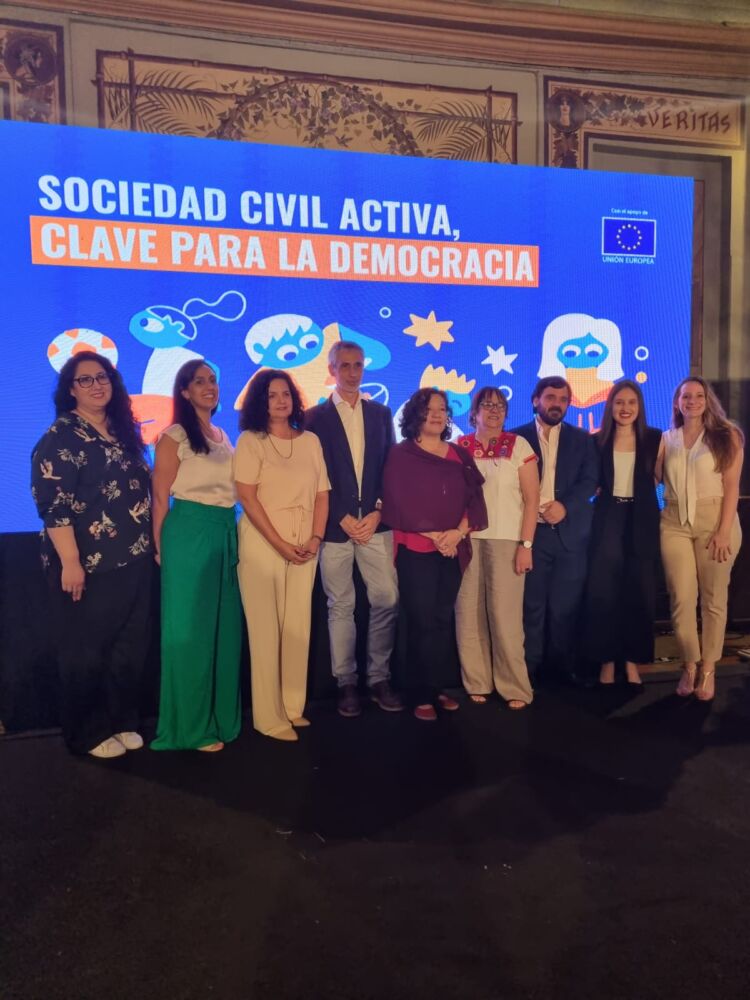
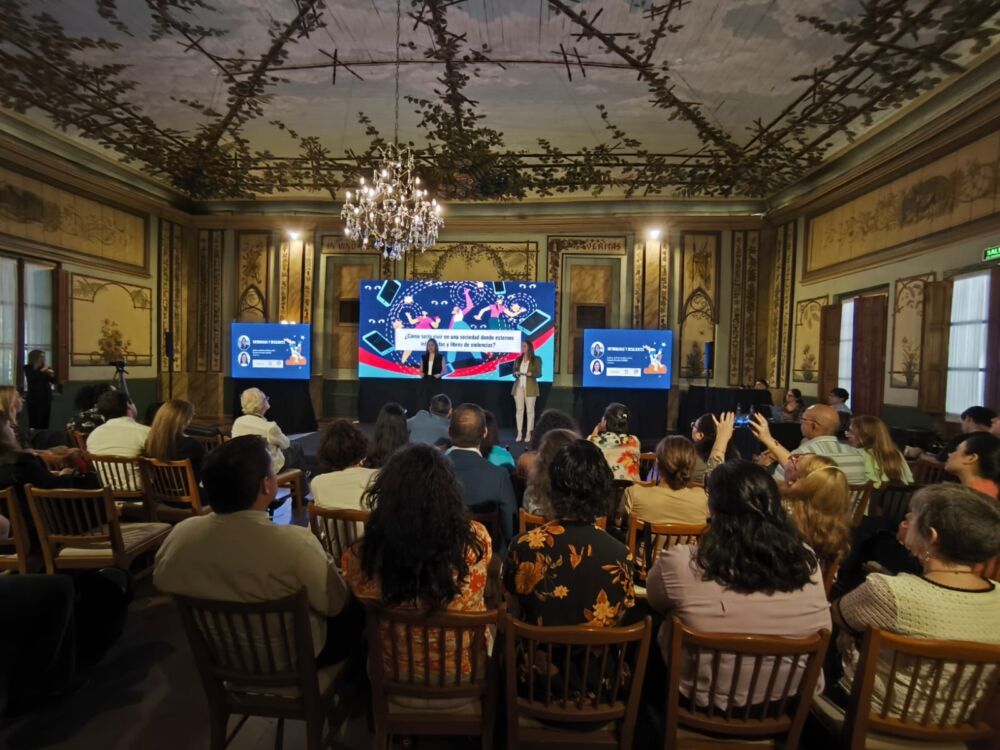
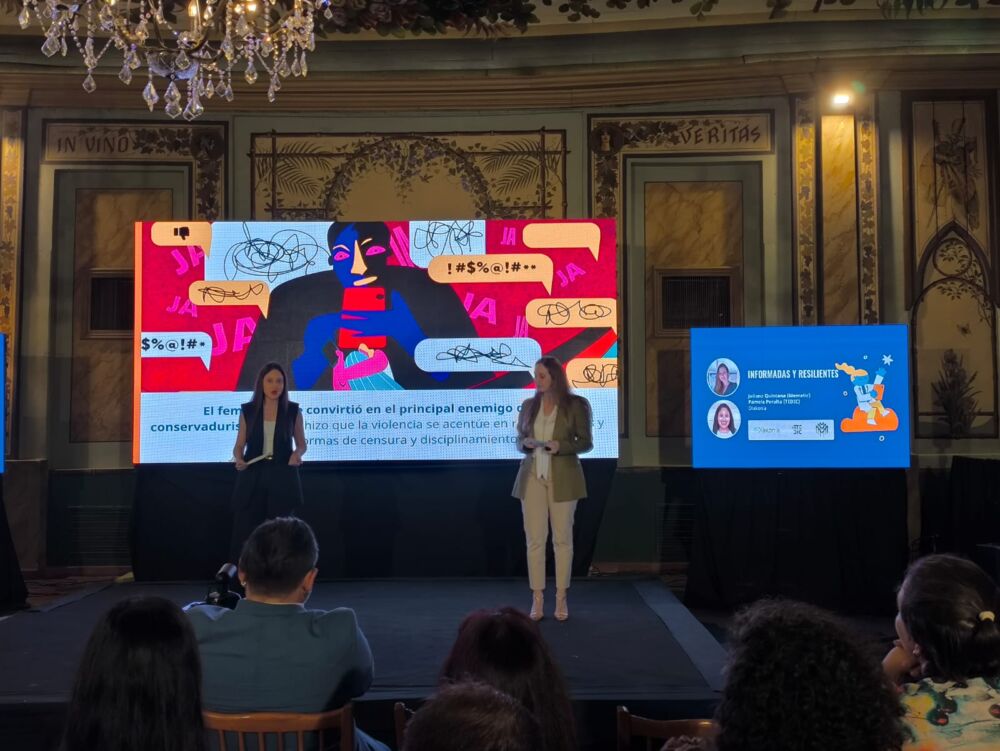
In May, we conducted a training workshop on gender-based violence facilitated by technology with students from Columbia University in Paraguay. In this workshop, focused on Sustainable Development Goals 5 and 16, we highlight the importance of gender equality and justice in the digital environment.
Additionally, since the beginning of the year, we have been actively participating in meetings of the Mesa Interinstitucional de Prevención de la Violencia contra la Mujer (PREVIM). In the months of April and May, TEDIC attended various ordinary and extraordinary sessions, where our representative, Pamela Peralta, coordinator of the gender area, played a prominent role.
In the first session, an international seminar on “Sistemas de Registro de Casos de Violencia contra las Mujeres” was presented, sharing experiences and good practices from Paraguay, Chile and Uruguay. The second extraordinary session discussed the work done in collaboration with the National Statistics Institute on administrative records and their conversion into statistical records by the Gender Secretariat of the Supreme Court of Justice. Advances and strategies related to the “Draft Law establishing Specialized Courts for Violence against Women” presented by the Ministry of Women were also addressed.
In the third session, the process of defining the Unificado y Estandarizado de Registro de la Violencia contra las Mujeres (RUVIG) continued. During this session, the Registry of Women Victims of Gender Violence in Spain was presented and the next steps in the joint construction of this system were discussed.
The political participation of women in Paraguay has been a process marked by challenges and obstacles, and one of the most insidious and growing is gender violence facilitated by technology.
In order to find solutions to this problem, Mariela Cuevas, representative of TEDIC, met with the Minister of Women, Cynthia Figueredo, and the Vice Minister Silvia Blasco. At this meeting, we talked about a new investigation underway within the project called “Gender violence facilitated by technology to female politicians in Paraguay”. With the results obtained, appropriate strategies will be sought to combat this type of violence, working on joint actions.
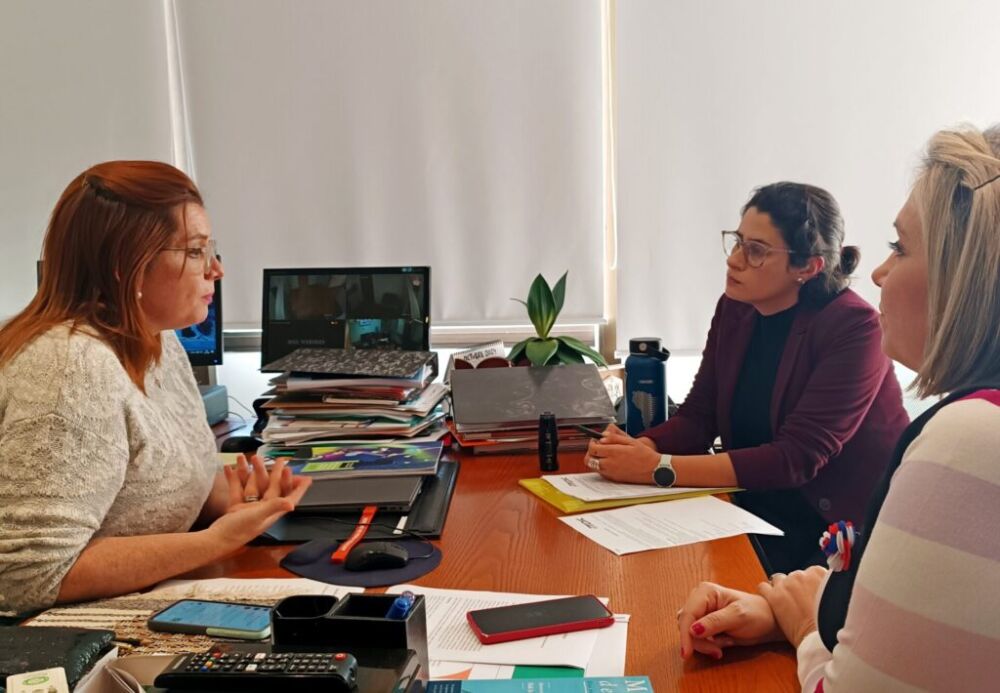
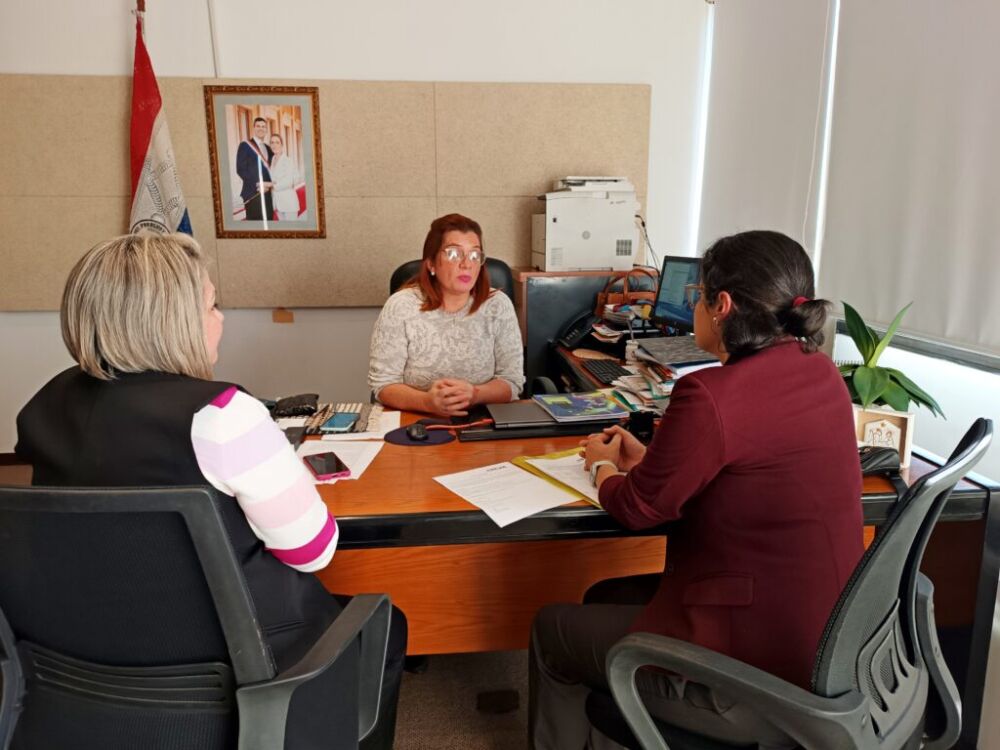
Moreover, throughout the month of May, we conducted two focus groups with councilors from the departments of Central and Cordillera. Data will emerge from these focus groups that will feed ongoing research on violence facilitated by technology against female politicians, enriching our understanding and helping us develop more effective strategies to combat this problem.
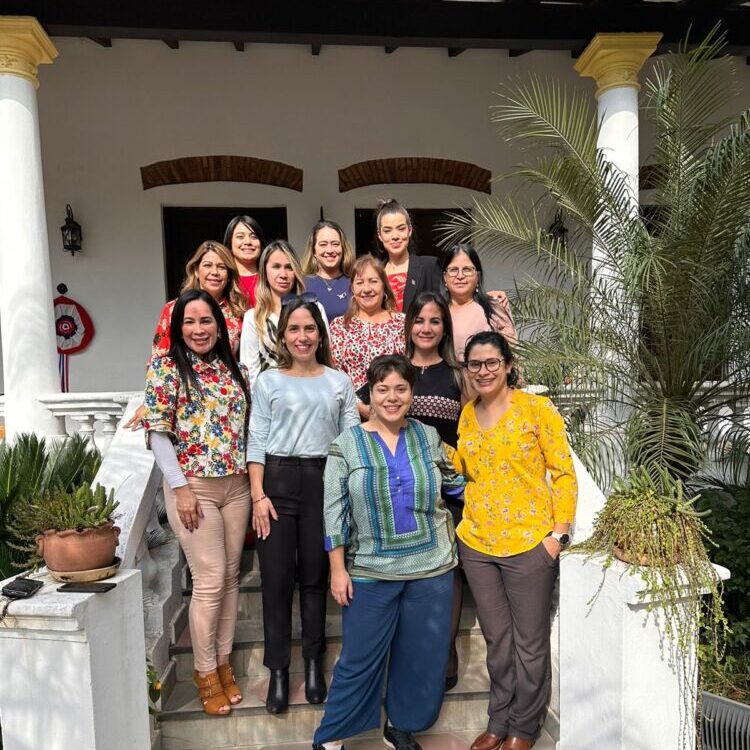
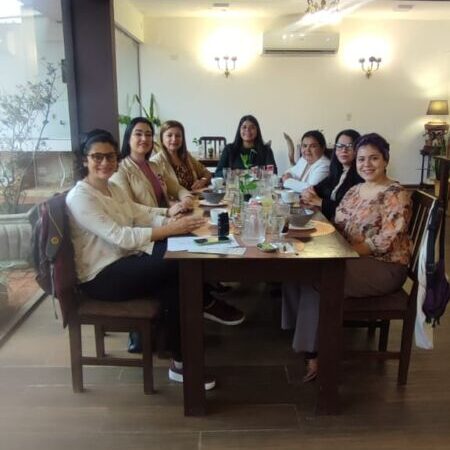
Our impact in the area of gender and digital inclusion also had repercussions in the press, with 6 mentions in digital press and television. These appearances centered on our work in mapping, recording, and conceptualizing the different forms in which gender violence facilitated by technology is manifested. Additionally, the dissemination and coverage of the award we received for our podcast “Ñe’ê ñembohasa”, co-produced with the peasant women of the Women’s Committee Kuña Aty from Táva Guaraní in the city of San Pedro, was highlighted.
Future Commitments
The first semester of 2024 was a period of intense activity and significant achievements for TEDIC. Through our advocacy actions, we worked on protecting human rights in digital environments, aiming to influence policies and promote a fairer and more equitable society. Our commitment remains steadfast, and we will continue to work to ensure that every technological advance respects and protects our fundamental rights.
1 To access all our interviews, you can visit our YouTube channel by following this link: https://www.youtube.com/@tedicpy

 [Research] Technology-facilitated gender-based violence against women politicians in Paraguay
[Research] Technology-facilitated gender-based violence against women politicians in Paraguay